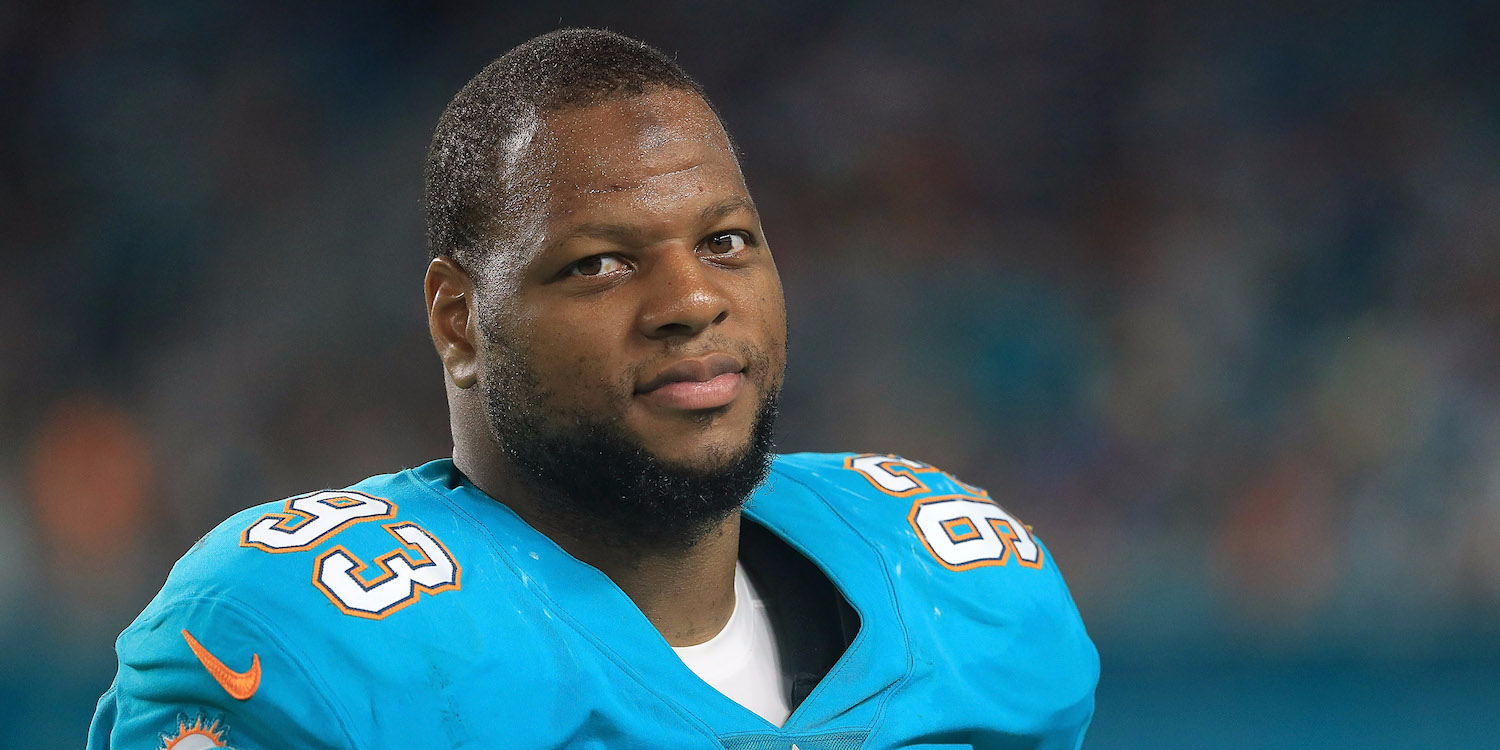- Miami Dolphins defensive lineman Ndamukong Suh explained to Business Insider that athlete contract values should really be split in half because of taxes and fees.
- Suh said that players face heavy income taxes, state taxes, city taxes, the “jock” tax, agent fees, and regular life expenses, which cut into their earnings.
- Suh said he doesn’t think casual fans understand that players don’t really make what their contracts say.
In 2015, Ndamukong Suh signed one of the biggest contracts in NFL history, agreeing to join the Miami Dolphins on a deal worth $114 million over six years, with $60 million guaranteed.
However, like many contracts in professional sports, the numbers aren’t exactly as they seem.
While speaking to Business Insider to promote his investment with emoji app Genies, Suh said that most people don’t understand that when players sign eight- and nine-figure deals, they should really split the number in half. He used his rookie deal as an example.
“Off of my rookie deal, which I’m not hiding anything, you can go and look at my deal, I had $40 million guaranteed, it was 6 years for $40 [million],” Suh said. “And you take the $40 million that was guaranteed and you swipe that in half because of taxes.”
Suh then explained how all of the different taxes and fees add up.
"Uncle Sam, the new tax reform, 37% goes to him," he said. "And then you have to factor in, I was in Detroit, so you have to factor in taxes there. So that would be Michigan state taxes and then you have the city of Detroit taxes, which is going to be 1 or 2%.
"So after you look at the particular piece, I'm probably, if I'm not mistaken, Michigan is at like 4 or 5%, so that's 42 [% of the deal]. City of Detroit's 1 or 2[%], so you've got 43 [% of the deal], then you throw your agent fees, that's 45, and then you throw in the concept of inflation, which is another 3[%], that's 48, and then living expenses, let's just say that's 2%, you're at 50%."
Suh noted that he also benefitted from being a first-round pick under the old CBA, saying players who were drafted in later rounds in the new CBA make less money.
Additionally, the "jock" tax - which taxes players for every state in which they play during the season - cuts into their earnings.
"So when I play in New York, when I play in New England, which is Boston, Massachusetts. I play in Buffalo, New York, I'm getting taxed twice in New York. And I have to allocate taxes for that because they don't take taxes out of your pay check ... And then even when I play New York teams, I'm getting taxed out of New York, but also I'm getting taxed out of New Jersey because I'm technically playing in the state of New Jersey."
Suh added: "Athletes have large W2s; we're hit very heavily."
As former NBA player Josh Childress once explained, many athletes also make life purchases, like houses and cars, without taking into account the smaller figures that they're truly earning.
"I think people have allusions of, there's no reason guys should ever go broke," Suh said, adding, "I don't think people see those things and understand what goes into that."

